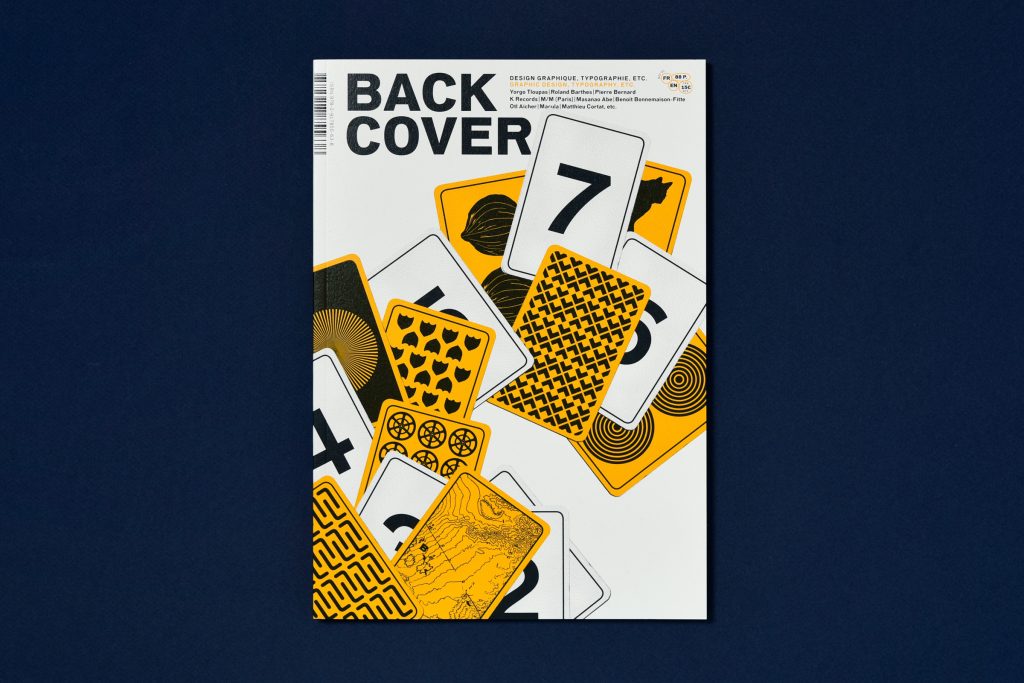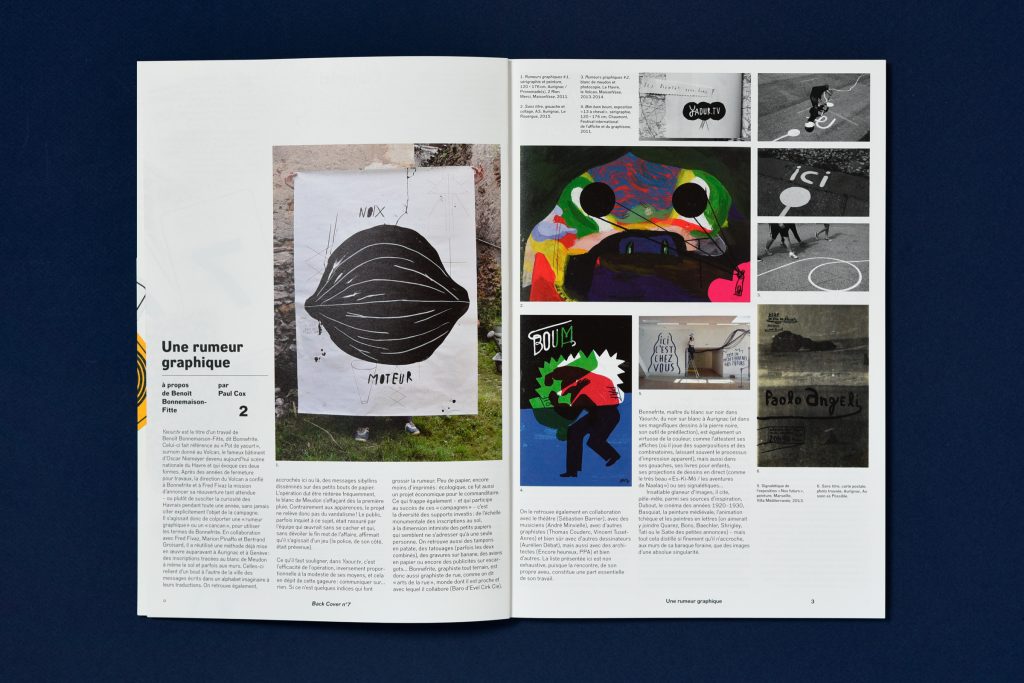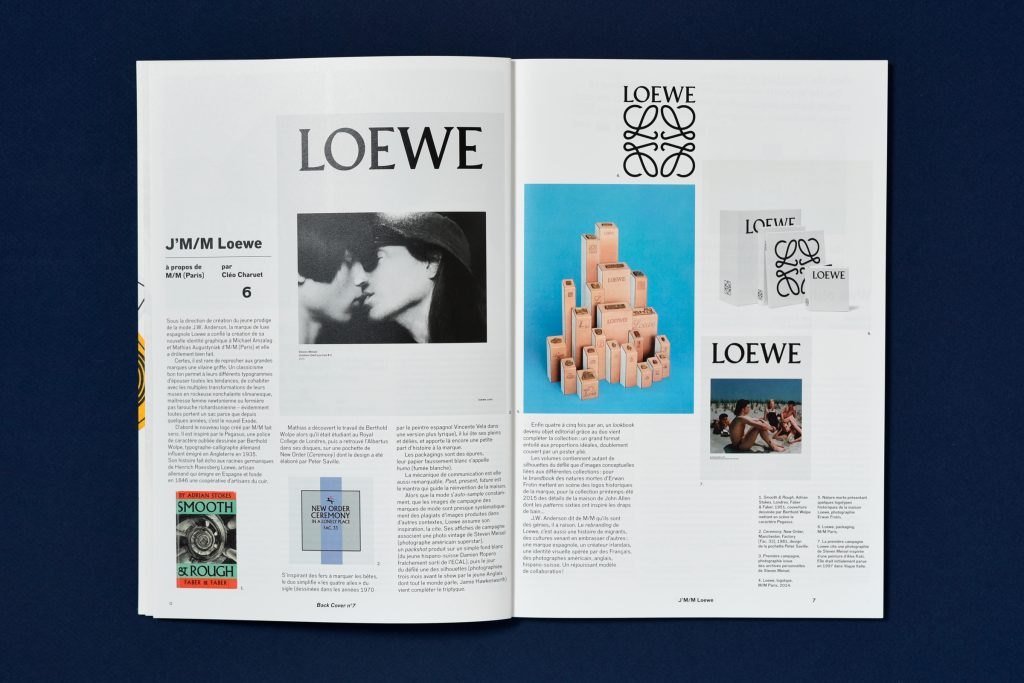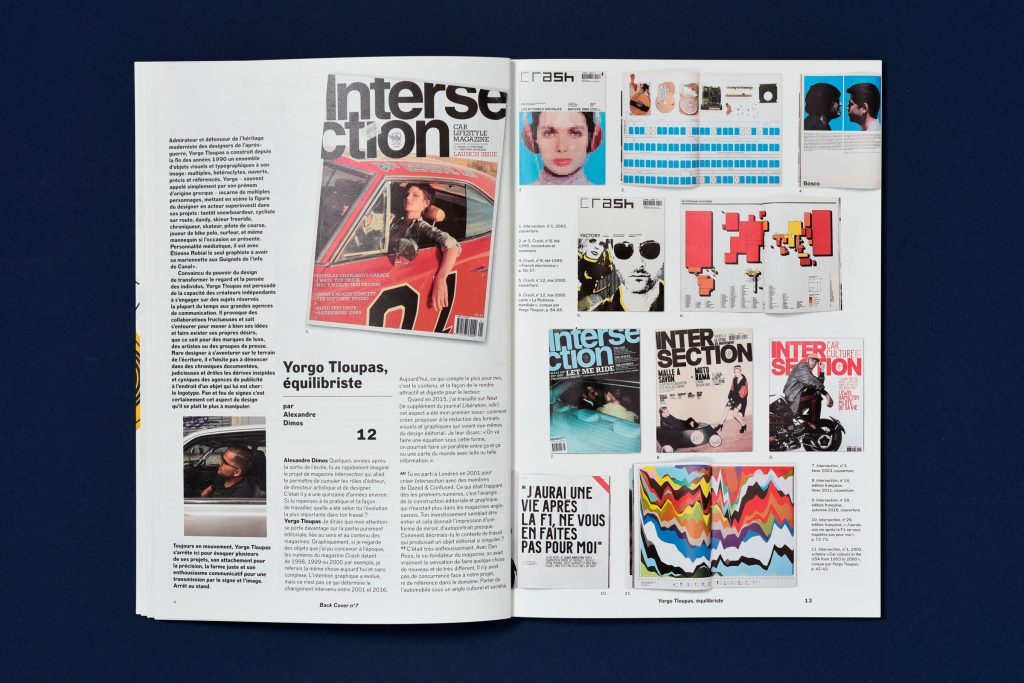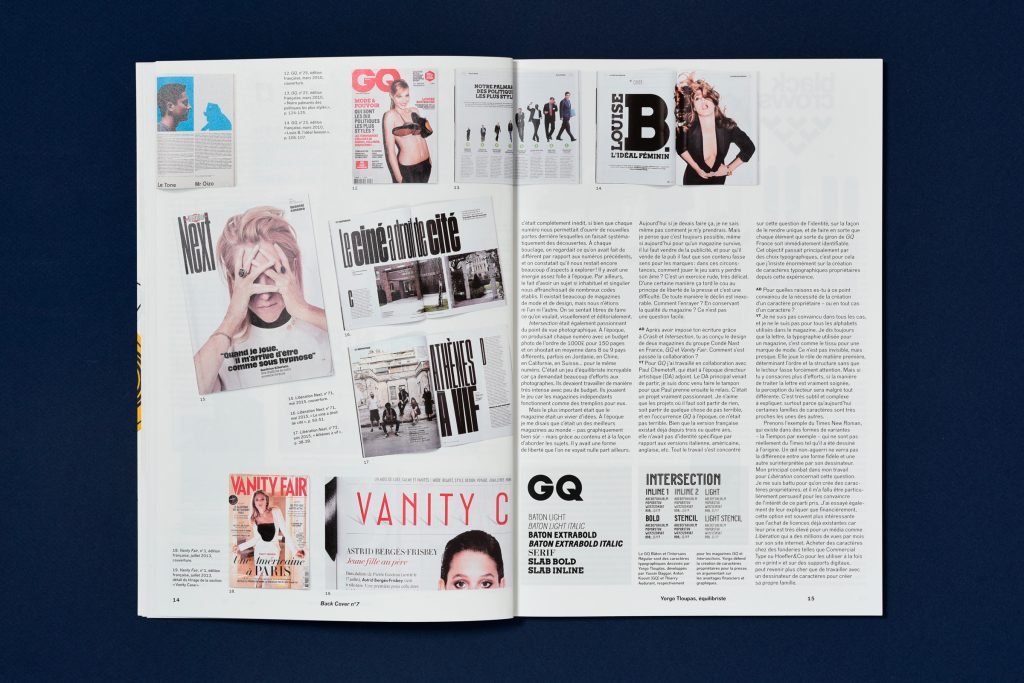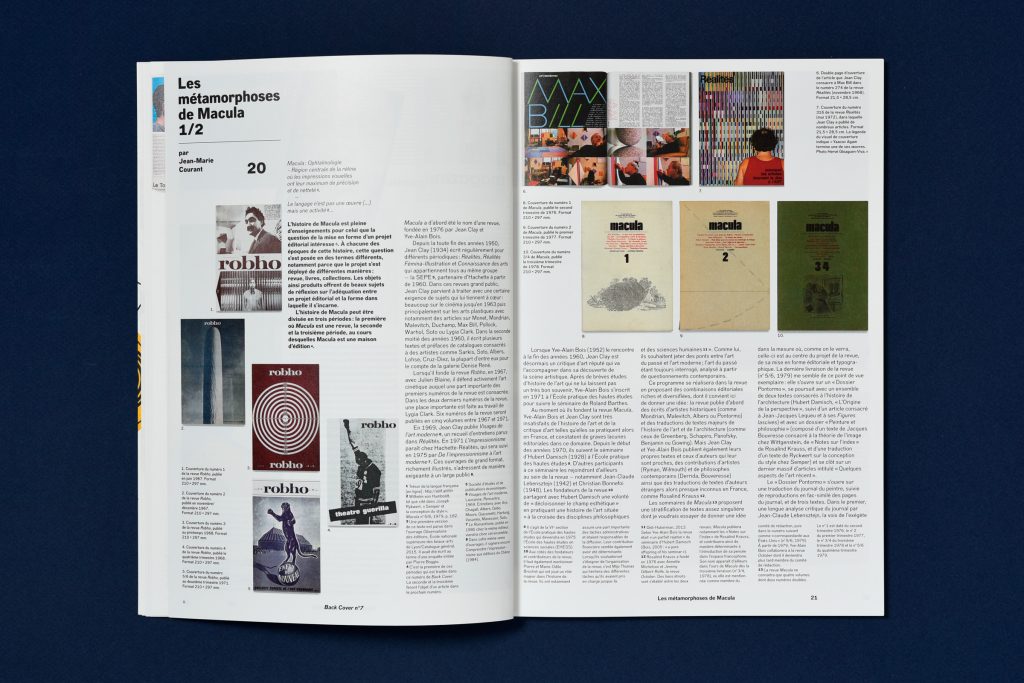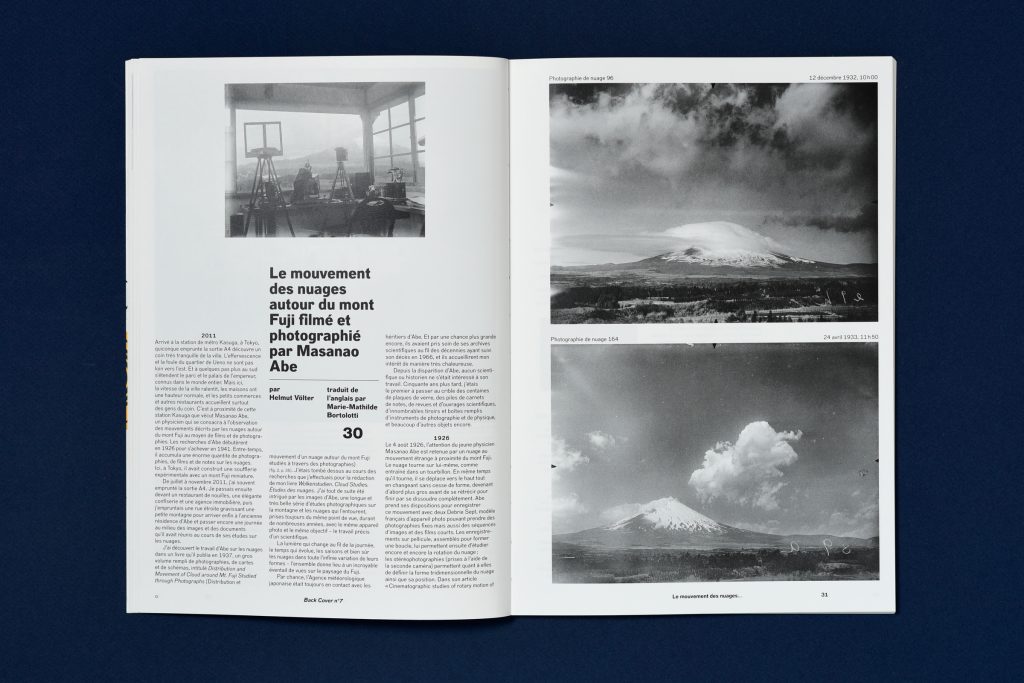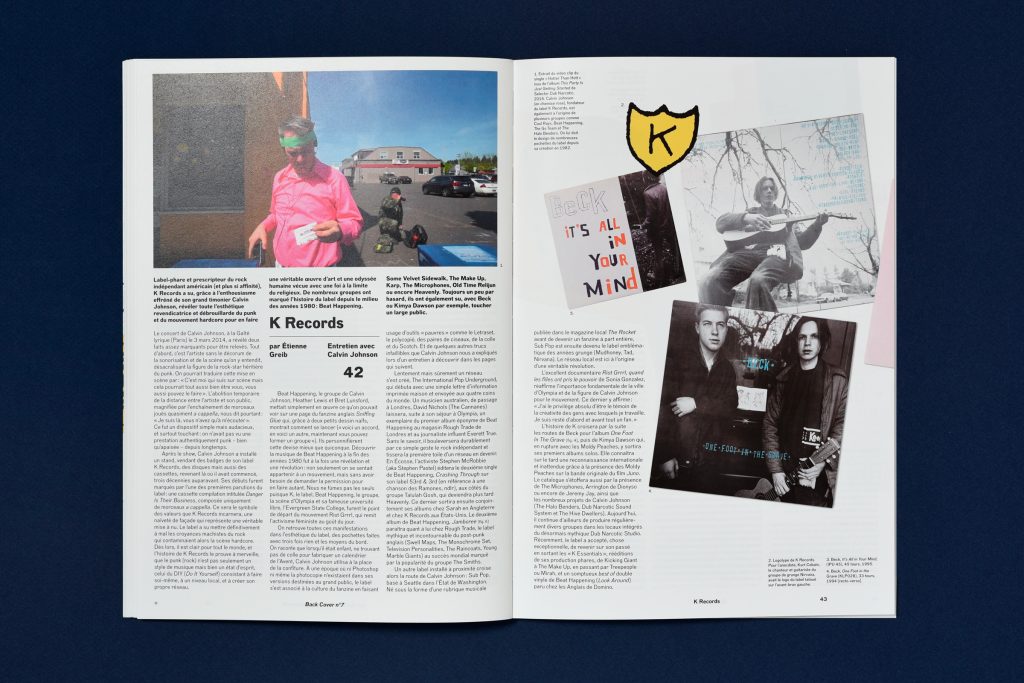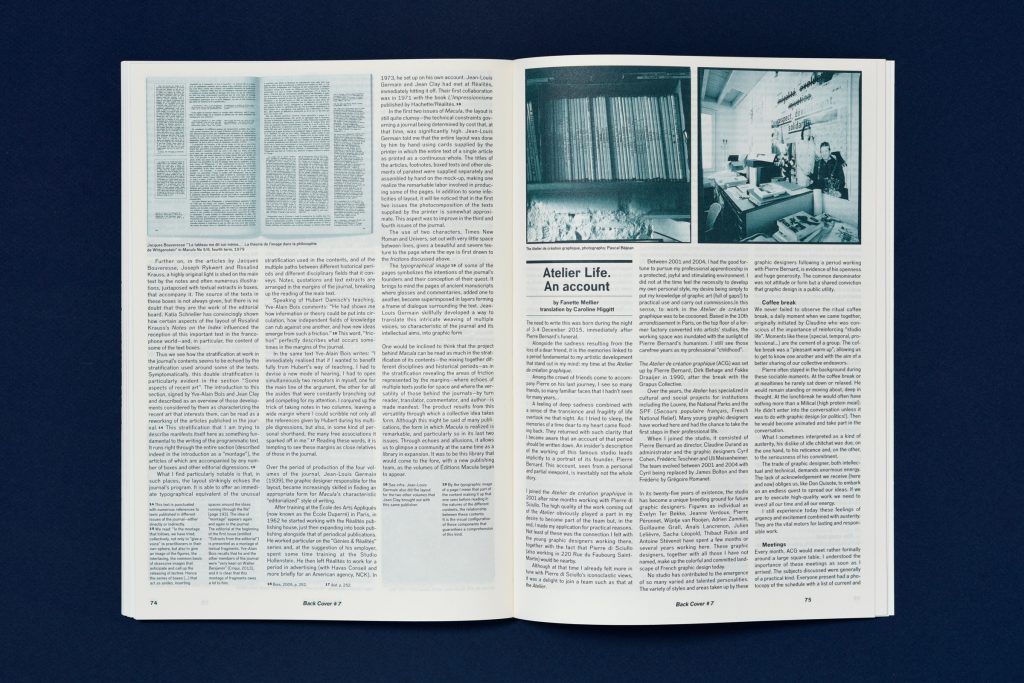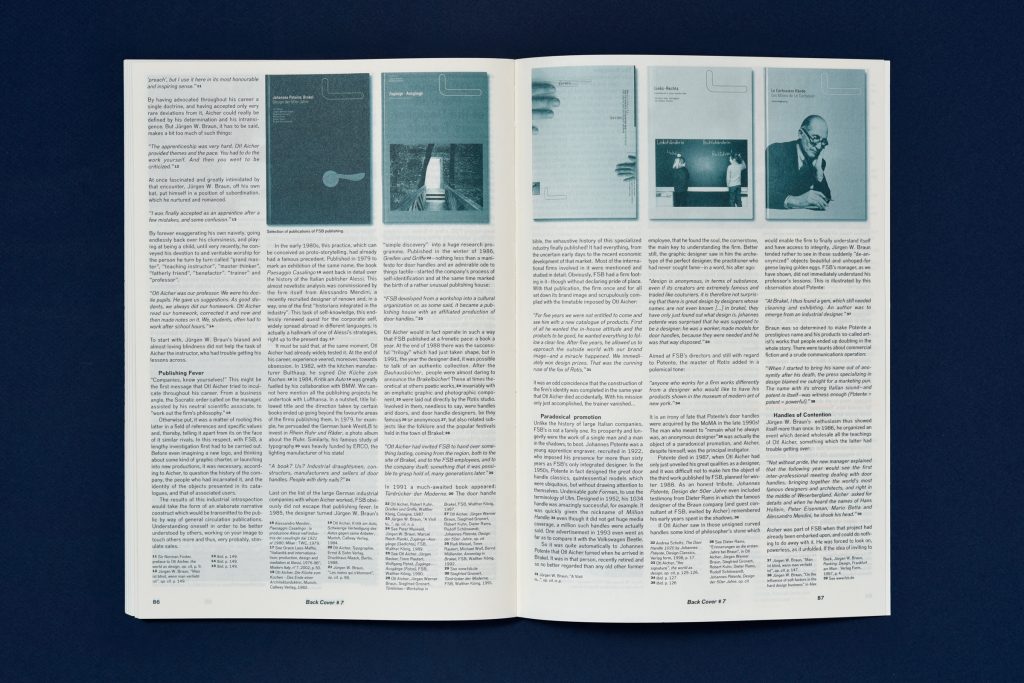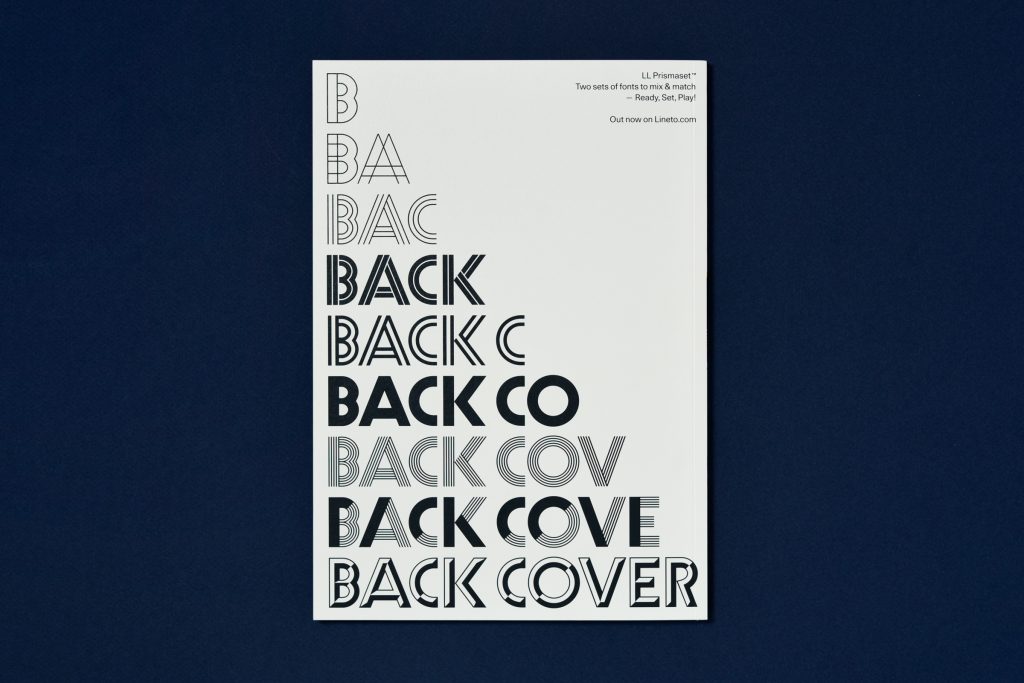BACK COVER #7
GRAPHIC DESIGN, TYPOGRAPHY, ETC.
The issue #7 of Back Cover is a response to the comments made by the British writer on design, Rick Poynor, about our journal: “I have to repeat an earlier request, though, B42: more interesting new (and historical) French subjects, please.” So we have taken this request literally. In different forms and with a certain degree of eclecticism, the topics in this issue go in search of French design, a subject we have failed to examine sufficiently in the past.
CONTENTS
Editorial
by Alexandre Dimos
Graphic Rumor. About Benoît Bonnemaison-Fitte
by Paul Cox
Getting back to Sources and Relying on Oneself. About Matthieu Cortat
by Alice Savoie
Beautiful Faces. About Claude Closky
by Frédéric Teschner
J’M/M Loewe. About M/M (Paris)
by Cléo Charuet
Web Oblique. About Slanted.cc
by Kévin Donnot, Anthony Masure
Two Images
by Philippe Millot
Points of View. About Eingengrau
by Syndicat
Yorgo Tloupas, Tightrope Walker
by Alexandre Dimos
Yorgo Tloupas has managed the artistic direction of several magazines such as Intersection, Crash Magazine and Vanity Fair France. He works mainly for the cultural field, luxury and fashion (YSL, Lacoste, Castelbajac, Armani), and has a predilection for bord sports – from his student project at the ESAG Penninghen, conceived at the end of the 90’s in collaboration with Rossignol, to the Black Crows skis brand, under his artistic direction. He created the graphic design studio Yorgo&co in 2010.
The Metamorphoses of Macula (1/2)
by Jean-Marie Courant
Macula was at first a magazine, created in 1976 by Jean Clay and Yve-Alain Bois, and became a publishing house in 1980. Its story of Macula is full of lessons for those interested in the question of layout design in publishing projects. Jean-Marie Courant will first examine the experience of Macula as a magazine. The second period, of Macula as a publishing house, will be treated in a second article, to be published in Back Cover #8.
Atelier Life. An account
by Fanette Mellier
The Atelier de création graphique has been created in 1989 by Pierre Bernard. Back Cover wishes to pay tribute to the designer with this article of Fanette Mellier, written in memory of her time at the Atelier between 2001 and 2004. Her testimony is illustrated by Pascal Béjean’s photographs.
The Movement of Cloud around Mt. Fuji Photographed and Filmed by Masanao Abe
by Helmut Völter
In 1927, the Japanese physicist Masanao Abe built an observatory, with a view over Mount-Fuji. From here, and during 15 years, Abe collected the clouds around the mountain. He was particularly interested in the scientific question of the air currents, and how they could be seen using photography and film. Abe leaves behind him a huge archive, unexplored, fascinating for both their scientific and aesthetic qualities.
Reading Barthes (typo)graphically
by Gilles Rouffineau
Is it possible for a capital letter to be used as punctuation? Is it simply a convention of a message to the lector? This question deserve to be address in Roland Barthes’ writings. Not in all his work – even if the reflexive consciousness of the scrip never miss an opportunity to point out what is graphically at stake with writing – but in one of its most famous text: The Death of the Author. That’s the point, should we write author, or Author? What the distinction actually means?
K Records
by Étienne Greib
Label-phare et prescripteur du rock indépendant américain, K Records a su, grâce à l’enthousiasme effréné de son grand timonier Calvin Johnson, mettre à jour toute l’esthétique revendicatrice et débrouillarde du Punk et du mouvement Hardcore pour en faire une véritable œuvre d’art, une odyssée humaine vécue presque sans drame mais avec une foi qui touche au religieux. Les disques marquants parus sur le label depuis le milieu des années 1980 sont nombreux (Beat Happening, Karp, Old Time Relijun, Heavenly), ils ont de plus parfois, de Beck à Kimya Dawson, su toucher un très large public, généralement par hasard.
Otl Aicher. Portrait of the Designer as Trainer
by Tony Côme
Lufthansa, ERCO, Bulthaup, BMW… many prestigious German firms have consulted Otl Aicher. If the famous graphic designer created remarkable logotypes, posters and scenographies, he would rather focus on the definition of their global identity, on the unveiling of their genetic code. Because his collaboration with FSB, a firm specializing in the production of door handles, was the most laborious, and even litigious, their collaboration is less famous. Focus on the last training lesson of the master of Rotis.
